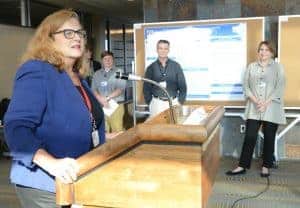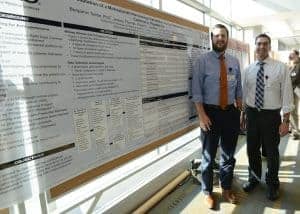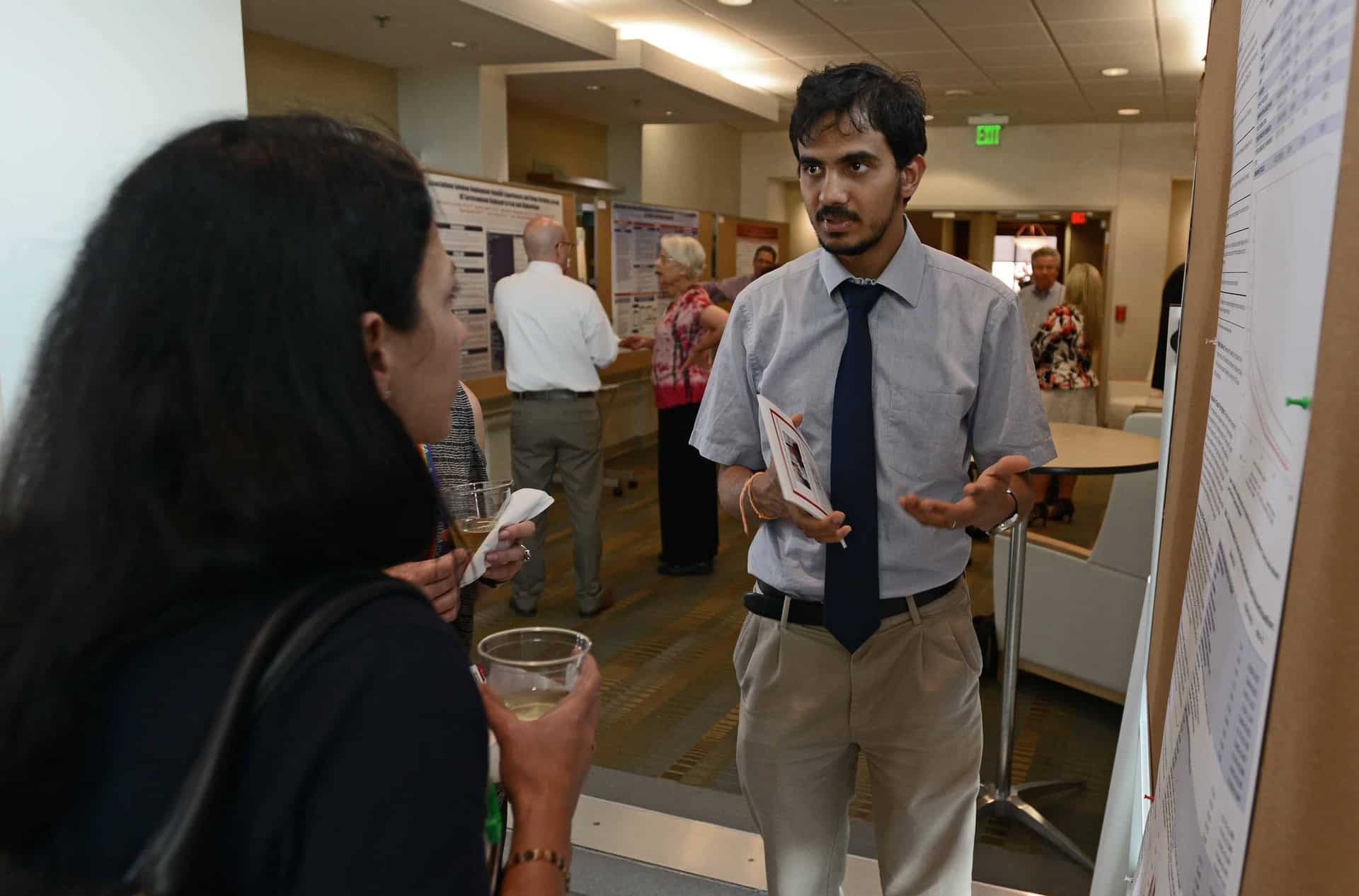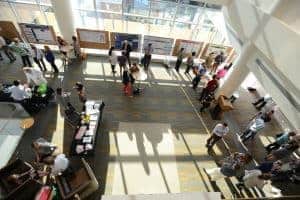Collaborations Billed as Key at Health Services Showcase
| Oct. 9, 2016 | Do patients follow through with treatments after they’ve left the doctor’s office? Will they come back for follow-up appointments? Will they take advantage of known, effective treatments? What factors are within the doctor’s control to help ensure that these things happen?
Many researchers at UAMS are exploring such questions – often employing technologies like telemedicine, mobile applications and wearables – and their work was on display Sept. 20 at the Showcase of Medical Discoveries: A Focus on Health Services. The 19th of such events in a series, it was hosted by the College of Medicine and held in the UAMS Winthrop P. Rockefeller Cancer Institute.
While welcoming the crowd to the event, Teresa Hudson, Pharm.D., Ph.D., director of the Division of Health Services Research in the Psychiatric Research Institute, noted the collaborations with colleges from across campus represented among the 17 posters and their presenters.

Teresa Hudson, Pharm.D., Ph.D., director of the Division of Health Services Research in the Psychiatric Research Institute, welcomes participants to the showcase.
“We have almost every college and we have many kinds of training and expertise represented here,” Hudson said. “That’s one of the things I think is so important about health services research. It brings together the best of all disciplines.”
She described health services research as “where the rubber meets the road” – where investigators explore what works best in the real world for real patients for real improvements to health.
Researchers, physicians, staff and students enjoyed wine and hors d’oeuvres as they learned about different types of research under the health services umbrella, networked and looked for opportunities to collaborate.
Richard R. Owen, M.D., is professor in the Department of Psychiatry in the UAMS College of Medicine and director of the Center for Mental Healthcare and Outcomes Research at the Central Arkansas Veterans Healthcare System, where he is also associate chief of staff for research.
The center’s goal is to improve access to and engagement in mental health and substance use treatments for veterans. For example, one project is looking into whether a computer-assisted cognitive behavioral therapy program can help both the patient and the therapist complete the entire course of treatment.
“The idea is that it helps both the patient and the provider stay on track, especially in smaller rural clinics where contact may be sporadic,” Owen said.
Other topics include, telemedicine for mental health treatments in rural communities, suicide prevention, how to improve the overall health of people with mental health issues, substance use, access to care, patient engagement, implementation science, effects of coaching and more.

Benjamin Teeter, Ph.D., left, and Jeremy Thomas, Pharm.D., present their poster with Geoffrey Curran, Ph.D., and Appathurai Balamurugan, M.D., titled ‘Adaptation of a Motivational Interviewing Intervention during Implementation in Four Community Pharmacies.’
“Participating in events like these is important. I try to be out there as much as possible, talking about this research, which is already very collaborative in nature, but the more we can locate opportunities for collaborations, the better. It strengthens the quality of what we’re doing at UAMS and the VA,” Owen said.
Carolyn J. Greene, Ph.D., associate professor in the Division of Health Services Research and national manager for mental health web services with the Department of Veterans Affairs Central Office, presented her research on whether combining coaching with mental health self-help mobile apps would encourage patients to continue to use the apps instead of lapsing in the treatment.
“In Arkansas, there are so many places where mental health treatment is not available, or maybe it is, but spending an hour in traditional therapy seems like an indulgence,” Greene said. “Meanwhile, everyone has a phone, and many of these apps are designed so if you have two to three minutes to spare, that’s enough. Or, they can be there for you right in the moment, say, if you’re dealing with anxiety. Giving the tools for people to self-help is powerful, and we’re working to understand how to make them even more effective.”

